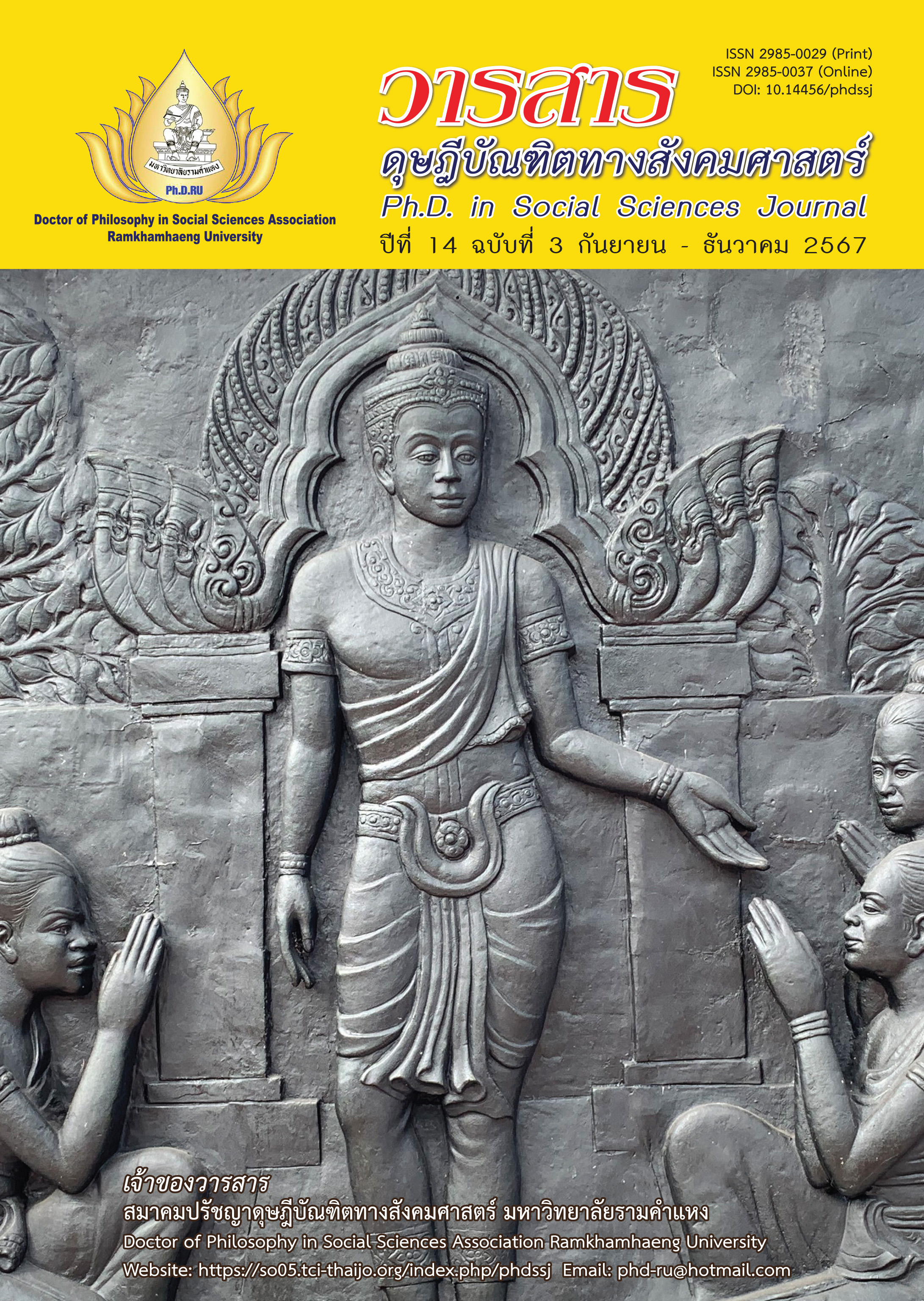Social Movements of Thai Sangha: A Case of the National Sangha Health Constitution
Main Article Content
Abstract
This research article aims to study the social movement relationships between the government and the sangha in Thai society; the movement development and the movement process of the Thai sangha in the mobilization of the National Sangha Health Constitution under liberty in democratic regime. This research is qualitative research and collecting data through documentary research and in-depth interviews. Data were analyzed using content analysis techniques.
Findings are as follows: The social movement relationships between the government and the sangha in Thai society is of three kinds: (1) patronage, (2) protection, and (3) supervision. While the movement development and the movement process of the Thai sangha in the mobilization of the National Sangha Health Constitution is divided as follows. (1) The formative wave was the policy development towards the resolution of the National Health Assembly (NHA). (2) The first wave was the mobilization of the resolution of the NHA in the path of “Dhamma Leading the World.” (3) The second wave was the resolution of the NHA towards the National Sangha Health Constitution, B.E. 2560. (4) The third wave was the coordination of the power of the sangha institution and the Buddhists to push forward the National Sangha Health Constitution. This movement took place under liberty of sanghas that was accepted by the leaders of the sangha organization, the network of sanghas for development, the government agencies, the health promotion organizations, and the public. Therefore, it led to cooperation in supporting the process of drafting and defining the mechanism for driving the National Sangha Health Constitution using the participatory process and the creation of an integrated cooperation network.
Article Details

This work is licensed under a Creative Commons Attribution-NonCommercial-NoDerivatives 4.0 International License.
Academic articles, research articles, and book reviews in the Ph.D. in Social Sciences Journal are author’s opinions, and not the publisher’s, and is not the responsibility of the Ph.D. in Social Sciences Journal Philosophy Association, Ramkhamhaeng University. (In the case that research is done on human, the researcher has to be trained in Ethics for Doing Research on Human Training and has to produce the evidence of the training).
References
Boonlue, N., & Sohheng, N. (2022). Democracy theory: A perspective from classical to contemporary to the future era. Dueankrajang. [In Thai]
Boonrueang, S., & Gataponyo (Aunruean), P. A.. (2020). Political science in Buddhist approach: Analysis of liberty in democratic regime. Journal of Graduate Studies Review, 16(2), 30-41. [In Thai]
Boranmoon, P., Pothiwan, P., & Satsanasupin, P. (2019). Politics on Thai Buddhist Bhikkhunis’ social movements. Governance Journal, 8(1), 140-159. [In Thai]
Chotiwaro (Khamma), P. P., & Phrakru Pipitsutaton (Boonchuay Sirindharo). (2020). The project to drive the National Sangha Health Constitution. Mahachulalongkornrajavidyalaya University Press. [In Thai]
Heywood, A. (1998). Political Ideologies: An introduction (2nd ed.). Palgrave Macmillan.
Hfocus. (2018). Top 5 diseases that sanghas suffer from the most. Retrieved from https://www.hfocus.org/content/2018/08/16206 [In Thai]
Kitiyadisai, K. (2013). The rights and freedoms of Buddhist monks. The Office of the Constitutional Court, College of Constitutional Court. [In Thai]
Kridkajornkornkul, N., & Khattha, T. (2012). Knowledge management in the case of driving the fifth resolution of the National Health Assembly, B.E. 2555 (2012), Resolution No. 5.7: The sangha and the development of health conditions. National Health Commission Office. [In Thai]
Lertpaithoon, S., & Samudavanija, K. (2003). Protection of people’s rights and freedoms by the Constitutional Court. Thammasat University, Center for Democracy Development Studies. [In Thai]
National Health Commission Office. (2019a). Proceed with “the National Sangha Health Constitution” to solve the health crisis of Thai sanghas. Retrieved from https://www.nationalhealth.or.th/en/node/1251 [In Thai]
National Health Commission Office. (2019b). The National Sangha Health Charter B.E. 2560. Author. [In Thai]
Phatharathananunth, S. (2016). Social movement theory and political protest. Inthanin. [In Thai]
Pintobtang, P. (2009). A framework for political analysis using social movement theory. Heinrich Boll Foundation, Southeast Asia Regional Office. [In Thai]
Silakhom, K. (2013). The philosophical analysis of freedom and its application for society. Sripatum Review of Humanities and Social Sciences, 13(1), 62-74. [In Thai]
Silakhom, K., Anothai, S., & Dokbua, F. (2016). Freedom of monks in Thai society: Through the viewpoint of postmodum philosophy: An analytic, appreciative and applicative study. Saint John’s Journal, 19(24), 125-141. [In Thai]
Sutta, C. (2017). Monks and promoting democracy or destroying neutrality. Journal of SaengKhomKham Buddhist Studies, 2(1), 79-106. [In Thai]
Wadkean, P., Junhasobhaga, J., & Sawangdee, Y. (2021). The role of Santi Asoke in social movements. Journal of Social Science and Buddhistic Anthropology, 6(4), 434-450. [In Thai]
Wanthana, S. (2001). Contemporary political ideologies. Kasetsart University, Faculty of Social Sciences. [In Thai]


